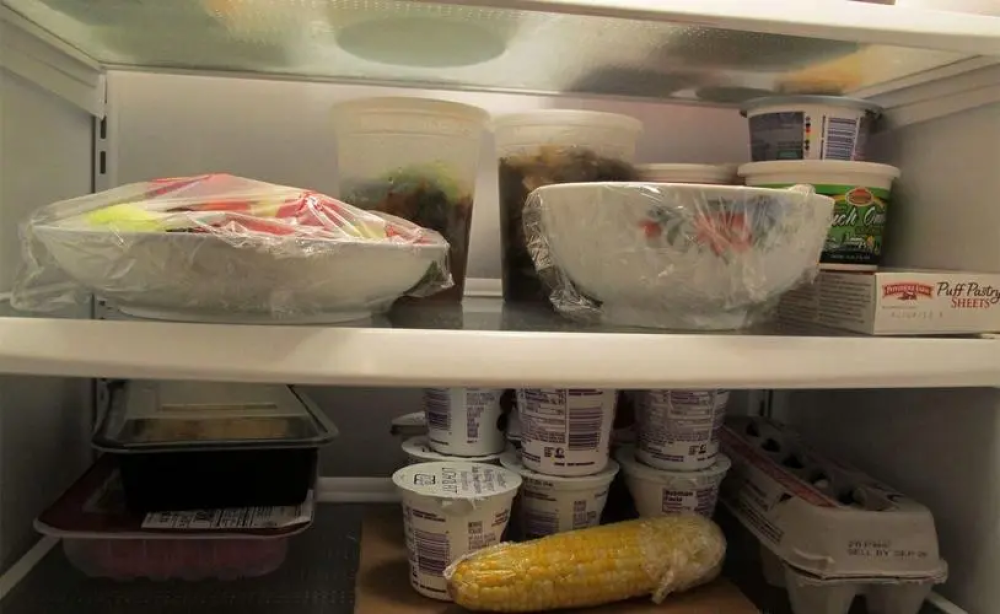Why is it that overnight food used to be okay to eat but now it is not? Is it that I can’t eat it anymore?

The company’s main business is to provide a wide range of products and services to the public.The citizen, surnamed Yang, waited until he was awake to tell his encounter, the day of the incident, he ate the meal was left over from the previous day, stored for only twenty hours.Ten minutes after heating it up and eating it, severe pain came from his stomach, followed by diarrhoea and weakness, and when he arrived at the hospital in the afternoon, he already had symptoms of bacterial food poisoning, infectious shock, metabolic acidosis and liver insufficiency.
In simple terms, it was a serious case of food poisoning, and the culprit was none other than the bacteria inside the overnight vegetables, resulting in a disturbance of the intestinal flora.
Doctors also say that the emergency department receives many patients every year who have problems eating overnight food. There is also a saying on the internet that “overnight vegetables are like arsenic and as poisonous as snakes”, and some people even say that overnight vegetables can cause cancer.
If this is the case, is it true that overnight vegetables should not be eaten in the future? Is it true that eating too much of it can affect your health? Why is it that it used to be fine to eat it, but now it is not?
In everyone’s opinion, there are two main reasons for all this, one is the excess of bacteria and the other is the excess of nitrite content.
Let’s take a look at the bacterial overload first. Improperly stored overnight vegetables can become a breeding ground for bacteria and microorganisms, which can cause diarrhoea and poisoning, and can be life-threatening, as in the case of Mr. Yang.
The second is that the nitrite in overnight vegetables exceeds the standard, and, the longer it is placed, the more nitrite is produced and the more toxic it is released by heating.
It is reported that data shows that as little as 0.3g to 0.5g of nitrite can cause poisoning, and 3g can cause death.
Nitrites, a general term for a class of inorganic compounds that look very similar to table salt, are often found in cured meats, pickles and spoiled meals and are a cancer risk when ingested over a long period of time.
Most importantly, when grown, vegetables absorb nitrogen fertiliser from the soil, which makes up the nitrate component of the vegetable, and when brought to room temperature, reduces nitrates to produce nitrites.
As nitrite has a high heat resistance, even when cooked at high temperatures, the nitrite in vegetables will remain, and overnight will make the nitrite content will exceed the standard, affecting health.
Both are problems with overnight vegetables, so can overnight vegetables still be eaten?
Previously, the Truth Investigation team conducted an experiment to test the nitrite content of overnight vegetables that had been left for fifteen hours.
The test subjects were fried vegetables, shredded potatoes with peppers, stir-fried meat with mushrooms and black fungus and steamed fish, which are very common in life.
However, the test results showed that there was no difference between the two dishes, except for the stir-fried vegetables and the stir-fried pork with mushrooms and black fungus, which showed a slight change in nitrite levels, and that they were all within the standard for consumption.
This means that there is no need to worry about excessive nitrite levels, as they do not pose a cancer risk as long as they are not stored for very long.
There are also certain requirements for bacterial overload, depending on the temperature of the storage environment, between 4°C and 25°C. The lower the temperature, the more it inhibits the reproduction of bacteria in the food.
On the contrary, the higher the temperature, the faster the multiplication rate, which is why meals tend to spoil in summer.
Usually, we keep our meals in the fridge and when we take them out to heat them up, we can observe whether the food has deteriorated by the colour and smell, etc. If it has, don’t eat it anymore
In addition, it is also important to note that not all dishes can be eaten overnight. For example, ingredients cooked at low temperatures and cold dishes, which themselves have not been heated, have more colonies present and bacteria multiply at a faster rate. Overnight consumption is not good for the stomach and digestion, including foods such as loose eggs, cold skinned eggs and jellyfish.
When reheating overnight food, it is important to heat it sufficiently to eliminate bacteria and microorganisms, so it will be safer to eat it, and it should not be stored for too long, otherwise it is really prone to bacterial overload.
It is best to eat now and pay attention to the cooking portions, after all, fresh tastes a little better, second heating, many ingredients taste changes.



